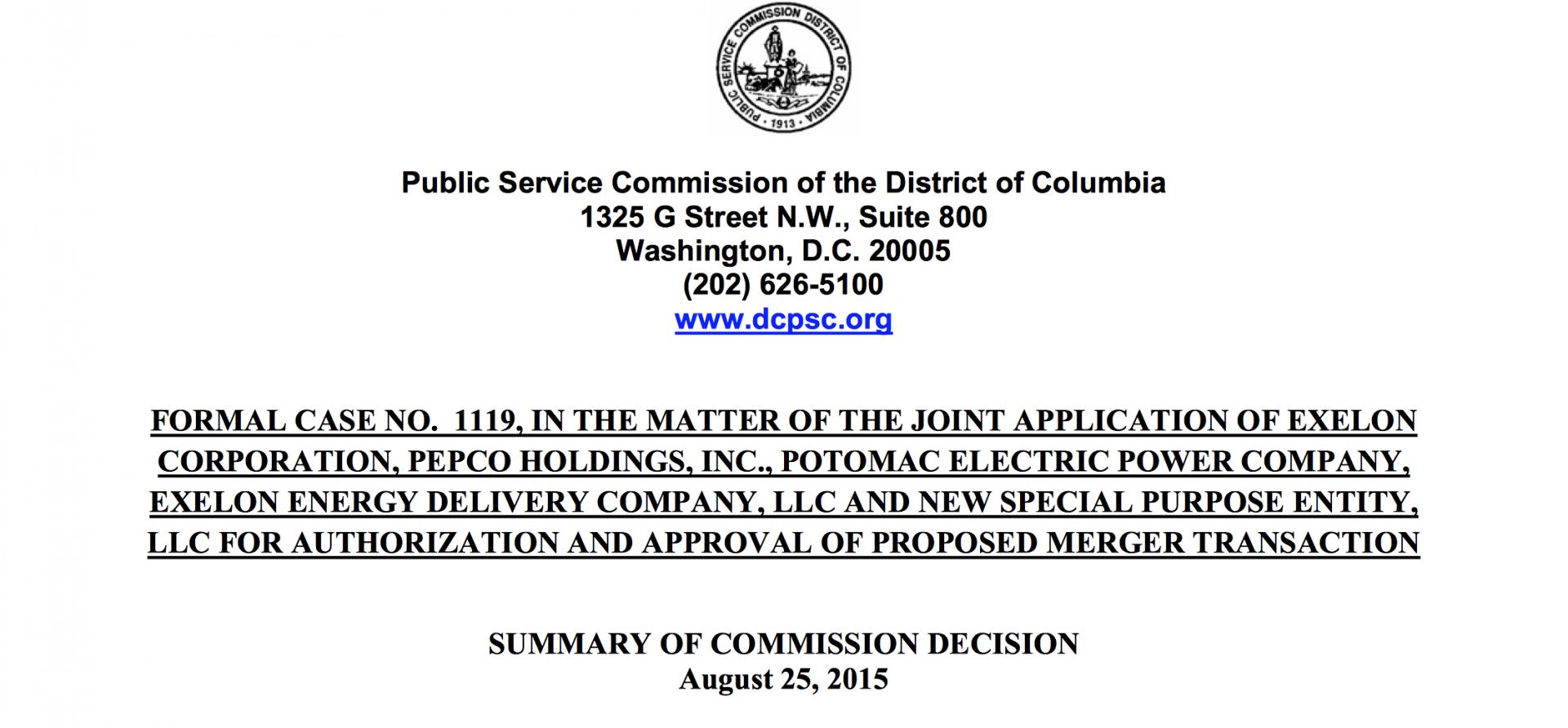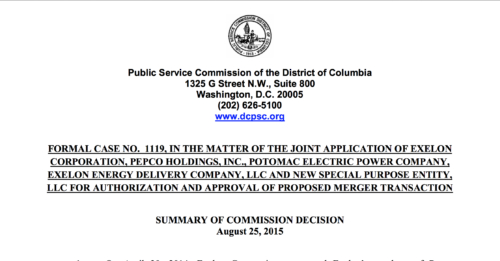In blocking the merger of Exelon Corp. and Pepco Holdings today, the D.C. Public Service Commission summarized its decision in language expressing a profound truth about the proposed merger:
“Unlike a rate case, this decision will effect a permanent change in the ownership and control of the District’s local electric distribution company. A rate case decision lasts only until the next rate case. This decision is forever.”
The commission noted also the deep and broad public interest and participation in the case, which would have given Chicago-based Exelon Corporation control over D.C.’s electric systems. “This proceeding has generated more interest and more active participation by parties and interested persons than any other proceeding in the commission’s more than a century of operations,” commissioners said. “Most of these parties opposed the transaction and asked the Commission to deny the application.”
Kudos to the commission for doing what is clearly in ratepayers’ best interest.
It’s important to note that the D.C. commissioners aren’t exactly outliers in their opinion. Although the deal was approved narrowly in May by the Maryland Public Service Commission, a blistering dissent by two members of that body stated the public-interest argument every bit as well as anybody has: “It will undermine competition; it will increase rates, challenging affordability for many consumers; and it will eviscerate economic protections due to a weakened and compromised corporate governance structure.” (The Maryland Energy Administration, the Maryland Office of People’s Counsel and the Maryland Public Service Commission’s own staff were opposed to the merger.)
The D.C. commission reached its decision notably, too, in the face of (“Nonprofit ‘Shills’ for a Utility Merger”) Pepco and Exelon spreading lots of money around town.
HERE’S SOMETHING ELSE THE D.C. COMMISSION SAID TODAY THAT GETS AT THE HEART OF WHAT’S AT STAKE:
“In this proceeding, the Commission must decide who will control the District’s only local electric distribution company at a time when our city’s leadership, at the urging of many residents, has mandated that the District must pursue a cleaner and greener future that includes more renewable energy resources and more distributed generation and at a time when the electric industry is undergoing significant transformation.”
We explored these very issues in a study (“Corporate Strategy at Ratepayer Expense”) we published in January that found many flaws in the proposal and recommended against the merger. The deal, had it gone through, would have enriched stockholders, but here’s what else would have happened:
- It would have exposed customers to rate increases aimed at supporting Exelon’s struggling business model.
- It would have undermined the District of Columbia’s renewable-energy initiatives
- It would have exposed ratepayers to long-term risks that are significantly larger than the short-term protections and public benefits claimed by Exelon.
Exelon is the largest owner of nuclear power plants in the country, and its wobbly fleet has been challenged in recent years by low wholesale power prices that are driven by cheap natural gas, stagnant electricity demand, and increasing renewable energy and energy efficiency. This merger might have bailed the company out, but at considerable expense to bill-paying households and businesses in D.C., Delaware and Maryland.
Hats off to the D.C. commissioners for standing up for their public today.
Cathy Kunkel is an IEEFA fellow.


















